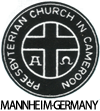[fusion_builder_container hundred_percent=”no” equal_height_columns=”no” menu_anchor=”” hide_on_mobile=”no” class=”” id=”” background_color=”” background_image=”” background_position=”left top” background_repeat=”no-repeat” fade=”no” background_parallax=”none” enable_mobile=”no” parallax_speed=”0.3″ video_mp4=”” video_webm=”” video_ogv=”” video_url=”” video_aspect_ratio=”16:9″ video_loop=”yes” video_mute=”yes” overlay_color=”” video_preview_image=”” border_size=”0px” border_color=”” border_style=”solid” margin_top=”” margin_bottom=”” padding_top=”” padding_right=”0px” padding_bottom=”” padding_left=”0px”][fusion_builder_row][fusion_builder_column type=”1_1″ layout=”1_1″ background_position=”left top” background_color=”” border_size=”” border_color=”” border_style=”solid” spacing=”yes” background_image=”” background_repeat=”no-repeat” padding_top=”” padding_right=”” padding_bottom=”” padding_left=”” margin_top=”0px” margin_bottom=”0px” class=”” id=”” animation_type=”” animation_speed=”0.3″ animation_direction=”left” hide_on_mobile=”no” center_content=”no” min_height=”none” last=”no” hover_type=”none” link=”” border_position=”all”][fusion_text]
About PCC
The Basel Missionaries arrived the coast of Cameroon on Dec 23rd 1886 with faith and zeal to plant God’s word in the Cameroonian soil. The first three who arrived were: Rev Gottlieb Munz, Rev Christian Dilger, Rev Johannes Bizer and Rev Friederich Becher. Rev Becker unfortunately died of malaria four days after their arrival. Writing back home about this, Rev Christian Dilger had this to say “It is the Lord whom it has pleased to introduce our band in such a way. We therefore can and will not withdraw.” And they did not withdraw.
From then on, through rough terrain, under difficult weather, threatened by the deadly malaria fever, they strode over long distances, taking the gospel of the resurrected Jesus Christ to Cameroonians. Their zeal was daunted only by the First World War when Germany finally succumbed to the military pressure of Britain and France and the territory was partitioned.
Britain was in control of 1/5 of the colonial territory and France had 4/5. This had serious consequences on the missionary enterprise. The missionaries, especially Germans, were forced to leave Cameroon since it was feared that the Germans could use their nationals to achieve their wish of reclaiming Cameroon (the last white missionaries to leave were the Australian R. Rhode, and the American Bender) and missionary work of the Basel Mission was left in the hands of the indigenes, championed by Johannes Litumbe Ekesse who directed the affairs of the Basel mission with some native teachers/catechists. Basel Missionary stations in the French Cameroon were left for some time unattended, until 1917 when the French-Paris Mission came in on the invitation of the Basel Mission.
After the world war, the Basel missionaries did not return to Cameroon until 1923 when the Home Board applied for the return of their missionaries. The Home Board of the mission was permitted to send back to Cameroon only three Swiss missionaries to serve under the French-Paris mission. In 1925, full permission was granted for the return of Basel missionaries. By December of that year Rev. Vielhauer returned to Bali. Others followed him shortly after.
By the early thirties the Basel mission had opened many new schools, medical institutions and theological colleges. In 1939, the works of the various missionary bodies in Cameroon were once more nearly grounded as a result of the Second World War. White missionaries had to leave the country. The works in the mission stations were carried out mostly by the native Pastors, Catechists and Teachers. After the war, many white Basel missionaries did not come back to Cameroon. This created the problem of personnel for the work in the field. In order to combat the problem the Home Board of the mission recommended the ordination and training of indigenous teachers/catechists to take up the mission work in the country.
As time went on, the Basel Mission thought the Church they had founded in Cameroon needed to be independent. For this to happen the Church had to be self-propagating (can evangelise on its own), self-governing (can govern itself), and self-supporting (can finance its own activities). By 1957, both the Basel mission and the indigenes thought the time was ripe for independence. Consequently, on the 13th of November 1957, at 11am, the Presbyterian Church in Cameroon was born when the final draft of the constitution was unanimously adopted at Ntanfoang-Bali. This was followed by prayer, hymns of praise and the ringing of the Ntanfoang Church bell.
From then on the Presbyterian Church has grown in leaps and bounds and now exists worldwide. (pcc cm)
[/fusion_text][/fusion_builder_column][/fusion_builder_row][/fusion_builder_container][fusion_builder_container hundred_percent=”no” equal_height_columns=”yes” menu_anchor=”” hide_on_mobile=”no” class=”” id=”” background_color=”” background_image=”” background_position=”left top” background_repeat=”no-repeat” fade=”no” background_parallax=”none” enable_mobile=”no” parallax_speed=”0.3″ video_mp4=”” video_webm=”” video_ogv=”” video_url=”” video_aspect_ratio=”16:9″ video_loop=”yes” video_mute=”yes” overlay_color=”” video_preview_image=”” border_size=”0px” border_color=”” border_style=”solid” margin_top=”” margin_bottom=”” padding_top=”40″ padding_right=”0px” padding_bottom=”60″ padding_left=”0px”][fusion_builder_row][fusion_builder_column type=”1_2″ layout=”1_2″ spacing=”no” center_content=”no” hover_type=”none” link=”” min_height=”” hide_on_mobile=”no” class=”” id=”” background_color=”” background_image=”https://pcc-mannheim.de/wp-content/uploads/2015/09/MODERATOR-PCC-290×300.jpg” background_position=”left top” undefined=”” background_repeat=”no-repeat” border_size=”0″ border_color=”” border_style=”solid” border_position=”all” padding_top=”” padding_right=”” padding_bottom=”” padding_left=”” margin_top=”” margin_bottom=”” animation_type=”” animation_direction=”down” animation_speed=”0.1″ animation_offset=”” last=”no” element_content=””][/fusion_builder_column][fusion_builder_column type=”1_2″ layout=”1_2″ last=”yes” spacing=”no” center_content=”yes” hide_on_mobile=”no” background_color=”#eaeaea” background_image=”” background_repeat=”no-repeat” background_position=”left top” border_position=”all” border_size=”0px” border_color=”” border_style=”solid” padding_top=”15%” padding_right=”15%” padding_bottom=”15%” padding_left=”15%” margin_top=”” margin_bottom=”” animation_type=”0″ animation_direction=”down” animation_speed=”0.1″ class=”” id=”” min_height=”” hover_type=”none” link=””][fusion_text]
The moderator of the PCC is the head of all the presbyterian churches in Cameroon. Rt. Rev. Fonki Samuel Forba is the current Moderator of the PCC.
[/fusion_text][/fusion_builder_column][/fusion_builder_row][/fusion_builder_container][fusion_builder_container hundred_percent=”no” equal_height_columns=”no” menu_anchor=”” hide_on_mobile=”no” class=”” id=”” background_color=”” background_image=”” background_position=”left top” background_repeat=”no-repeat” fade=”no” background_parallax=”none” enable_mobile=”no” parallax_speed=”0.3″ video_mp4=”” video_webm=”” video_ogv=”” video_url=”” video_aspect_ratio=”16:9″ video_loop=”yes” video_mute=”yes” overlay_color=”” video_preview_image=”” border_size=”0px” border_color=”” border_style=”solid” margin_top=”” margin_bottom=”” padding_top=”” padding_right=”0px” padding_bottom=”40″ padding_left=”0px”][fusion_builder_row][fusion_builder_column type=”1_1″ layout=”1_1″ background_position=”left top” background_color=”” border_size=”” border_color=”” border_style=”solid” spacing=”yes” background_image=”” background_repeat=”no-repeat” padding_top=”” padding_right=”” padding_bottom=”” padding_left=”” margin_top=”0px” margin_bottom=”0px” class=”” id=”” animation_type=”” animation_speed=”0.3″ animation_direction=”left” hide_on_mobile=”no” center_content=”no” min_height=”none” last=”no” hover_type=”none” link=”” border_position=”all”][fusion_text]
Rev Fonki was born on the 23rd of November 1965 in his native village of Bombe in Akwaya Sub Division in Manyu Division. His educational career that started at St. Paul Primary School Bombe, culminated with a Masters Degree in Applied Theology at the University of Birmingham in the United Kingdom. He has served the church in different capacities, ranging from Parish Pastor to Presbyterial Secretary in different presbyteries and also as Direct Partnership Secretary PCC.
He is married to Rev. Dr. Perpetua Fonki a lecturer at the Cameroon Christian University – Kumba Campus, and they are blessed with a son named Fonki Samuel Forba Junior.
[/fusion_text][/fusion_builder_column][/fusion_builder_row][/fusion_builder_container][fusion_builder_container hundred_percent=”yes” equal_height_columns=”no” menu_anchor=”” hide_on_mobile=”no” class=”” id=”” background_color=”#ececec” background_image=”” background_position=”left top” background_repeat=”no-repeat” fade=”no” background_parallax=”none” enable_mobile=”no” parallax_speed=”0.3″ video_mp4=”” video_webm=”” video_ogv=”” video_url=”” video_aspect_ratio=”16:9″ video_loop=”yes” video_mute=”yes” overlay_color=”” video_preview_image=”” border_size=”0px” border_color=”” border_style=”solid” margin_top=”” margin_bottom=”” padding_top=”” padding_right=”0px” padding_bottom=”” padding_left=”0px”][fusion_builder_row][fusion_builder_column type=”1_1″ layout=”1_1″ background_position=”left top” background_color=”” border_size=”” border_color=”” border_style=”solid” spacing=”yes” background_image=”” background_repeat=”no-repeat” padding_top=”” padding_right=”” padding_bottom=”” padding_left=”” margin_top=”0px” margin_bottom=”0px” class=”” id=”” animation_type=”” animation_speed=”0.3″ animation_direction=”left” hide_on_mobile=”no” center_content=”no” min_height=”none” last=”no” hover_type=”none” link=”” border_position=”all”][fusion_button link=”https://pcc-mannheim.de/contact/” title=”” target=”_self” alignment=”” modal=”” hide_on_mobile=”small-visibility,medium-visibility,large-visibility” class=”customButton” id=”” color=”default” button_gradient_top_color=”” button_gradient_bottom_color=”” button_gradient_top_color_hover=”” button_gradient_bottom_color_hover=”” accent_color=”” accent_hover_color=”” type=”” bevel_color=”” border_width=”” size=”xlarge” stretch=”default” shape=”square” icon=”fa-commenting-o” icon_position=”left” icon_divider=”no” animation_type=”” animation_direction=”left” animation_speed=”1.0″ animation_offset=””]Come Visit us This Weekend[/fusion_button][/fusion_builder_column][/fusion_builder_row][/fusion_builder_container][fusion_builder_container hundred_percent=”yes” equal_height_columns=”no” menu_anchor=”” hide_on_mobile=”small-visibility,medium-visibility,large-visibility” class=”” id=”” background_color=”” background_image=”” background_position=”center center” background_repeat=”no-repeat” fade=”no” background_parallax=”none” enable_mobile=”no” parallax_speed=”” video_mp4=”” video_webm=”” video_ogv=”” video_url=”” video_aspect_ratio=”” video_loop=”yes” video_mute=”yes” overlay_color=”” video_preview_image=”” border_size=”” border_color=”” border_style=”solid” margin_top=”60px” margin_bottom=”” padding_top=”” padding_right=”0px” padding_bottom=”” padding_left=”0px”][fusion_builder_row][fusion_builder_column type=”1_1″ layout=”1_1″ background_position=”left top” background_color=”” border_size=”” border_color=”” border_style=”solid” spacing=”yes” background_image=”” background_repeat=”no-repeat” padding_top=”” padding_right=”” padding_bottom=”” padding_left=”” margin_top=”0px” margin_bottom=”0px” class=”” id=”” animation_type=”” animation_speed=”0.3″ animation_direction=”left” hide_on_mobile=”no” center_content=”no” min_height=”none” last=”no” hover_type=”none” link=”” border_position=”all”][fusion_separator style_type=”none” sep_color=”” border_size=”” icon=”” icon_circle=”” icon_circle_color=”” width=”” alignment=”center” class=”” id=”” /][/fusion_builder_column][/fusion_builder_row][/fusion_builder_container]

